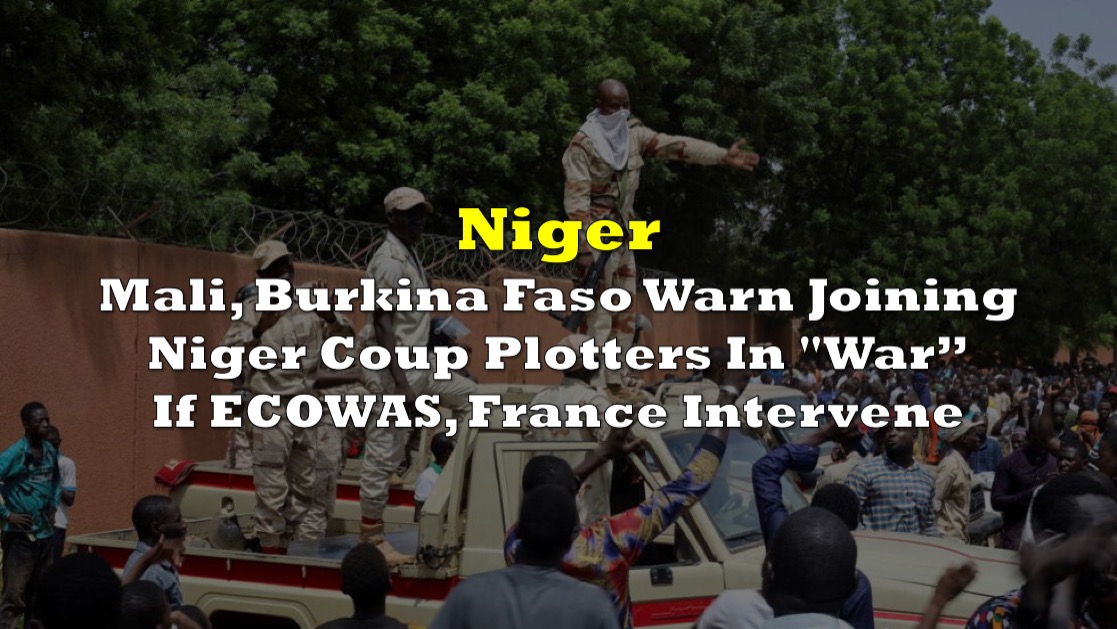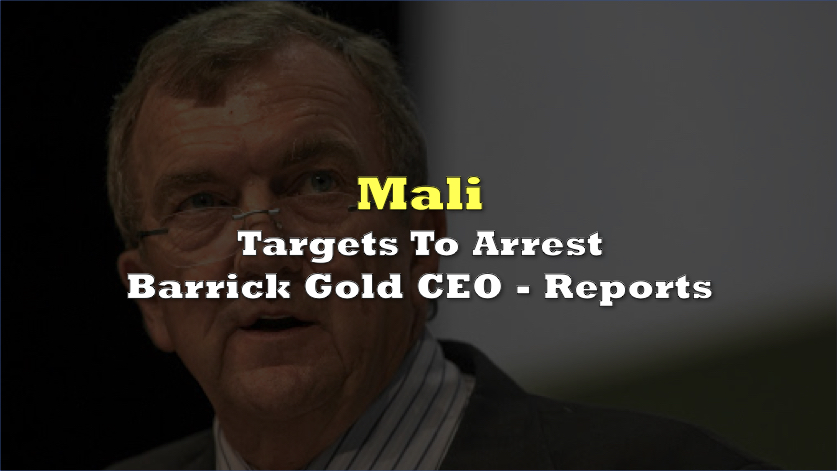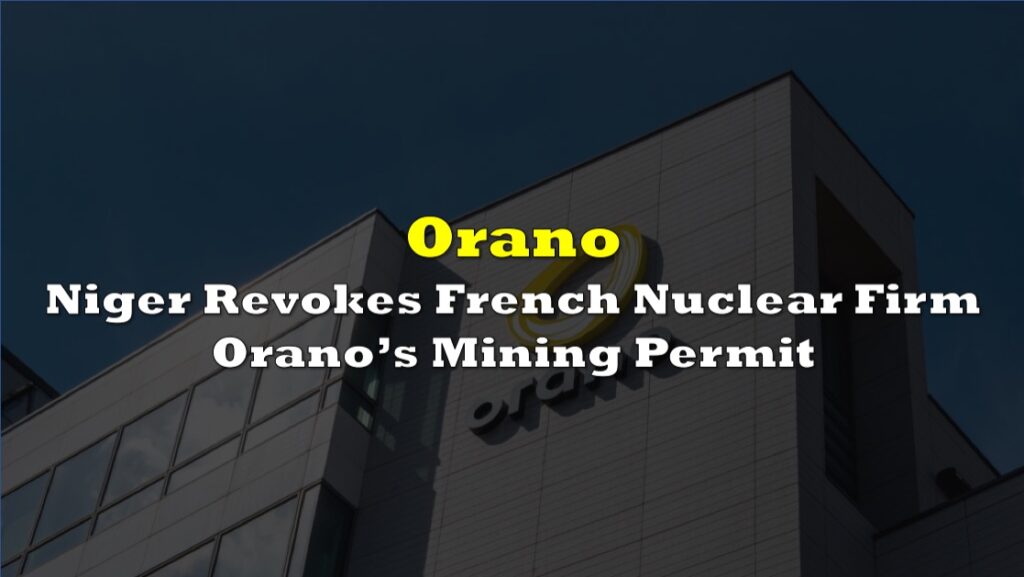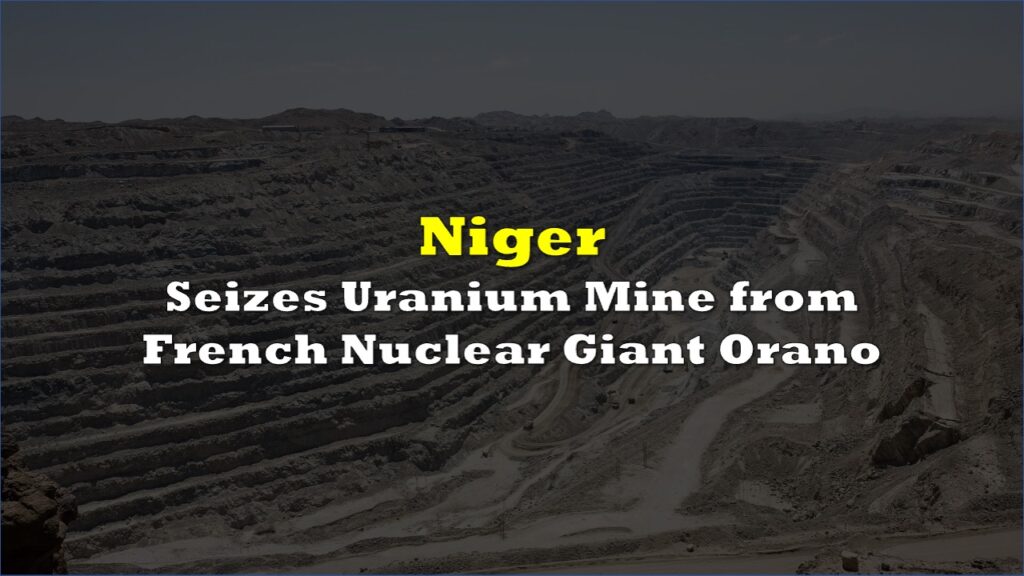Following last week’s coup in Niger, the military governments of Burkina Faso and Mali have issued a stern warning, stating that any military intervention against the coup leaders in Niger would be considered a “declaration of war” against their respective nations.
In joint statements broadcast on national media, the governments of Burkina Faso and Mali expressed their solidarity with the people of Niger and their decision to take control of their destiny and sovereignty.
“The transitional governments of Burkina Faso and Mali express their fraternal solidarity… to the people of Niger, who have decided with full responsibility to take their destiny in hand and assume the fullness of their sovereignty before history,” the two countries said in a press statement.
🇧🇫🇳🇪🇲🇱 #Mali and #Burkina Faso announced this evening that they would go to war alongside the putschists in #Niger in the event of ECOWAS intervention.
— Casus Belli (@casusbellii) July 31, 2023
As a reminder, ECOWAS has given Niger 7 days to re-establish a constitutional government. Beyond this deadline, ECOWAS has… https://t.co/eNhhRBkGEj
The Burkinabe and Malian military authorities emphasized that any military action against Niger could lead to “disastrous consequences” that may destabilize the entire region.
Additionally, they voiced their refusal to comply with the “illegal, illegitimate, and inhumane” sanctions imposed on the people and authorities of Niger by regional bloc Economic Community of West African States (ECOWAS), which includes a halt in financial transactions and a freeze of national assets. ECOWAS has threatened the use of force to reinstate Niger’s deposed President Mohamed Bazoum.

The coup in Niger, which saw General Abdourahamane Tchiani named as head of state, has sparked tensions in West Africa, dividing the country’s former Western allies and regional bodies. The African Union, United States, United Nations, European Union, and other powers swiftly condemned the power grab. In response, ECOWAS imposed sanctions and suggested the possibility of military intervention to restore Bazoum to power.
Notably, Guinea’s President Mamady Doumbouya, whose government also came to power through a coup, expressed disagreement with the recommended sanctions by ECOWAS, including the possibility of military intervention. Doumbouya’s office argued that such measures could lead to a humanitarian disaster with consequences extending beyond Niger’s borders and urged ECOWAS to reconsider its position.
🔴 𝐂𝐎𝐌𝐌𝐔𝐍𝐈𝐐𝐔𝐄́ 𝐍𝐨 𝟎𝟎𝟐/𝐂𝐍𝐑𝐃/𝟐𝟎𝟐𝟑
— Présidence de la Guinée (@Presidence_gn) July 31, 2023
🔹 Suite aux événements survenus au Niger, le Comité National du Rassemblement pour le Développement (CNRD) a fermement exprimé son soutien envers les populations de ce pays ami, en soulignant l'importance des valeurs de… pic.twitter.com/Ap7rHGzDWF
Amidst the coup, Niger’s military has taken further steps to consolidate its power by arresting top officials of the deposed government, including ministers and party leaders. Nevertheless, some international actors, such as the United States, France, and Germany, hold the view that the coup was not entirely successful, leaving the door open for the potential reinstatement of President Bazoum.
On Monday, the leaders of the coup in Niger made an accusation, claiming that Bazoum’s government had given authorization for a French attack on the presidential palace. However, Paris promptly refuted this claim.
The coup has also elicited anti-French sentiments, with ongoing pro-coup protests outside the French embassy in Niamey. Demonstrators were heard chanting slogans in support of Russia, reflecting the potential for further instability and concerns that mercenary groups like the Wagner Group from Russia may exploit the situation.
Despite Wagner Group leader Yevgeny Prigozhin’s approval of the coup, the Kremlin in Russia expressed serious concern about the unfolding events in Niger. Meanwhile, Chad’s President Mahamat Deby has engaged in mediation efforts between the Nigerien government and the military, though no public comments have been made regarding the discussions.
Information for this story was found via AlJazeera and the sources mentioned. The author has no securities or affiliations related to the organizations discussed. Not a recommendation to buy or sell. Always do additional research and consult a professional before purchasing a security. The author holds no licenses.









